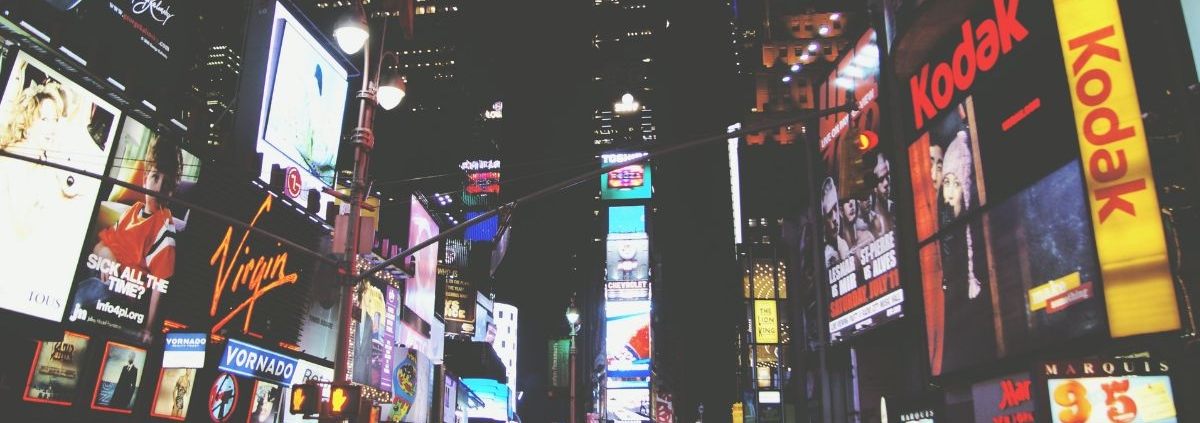Struggling to Sell Ideas? Try Being Uglier, Dumber and More Doubtful
By: Michael McQueen
Earlier this year, a cereal brand faked a whole set of endorsements and got away with it.
The reason? They explicitly stated so, right beneath the pretend endorsement. UK cereal brand Surreal’s campaign featured a whole series of ads which all read along the lines of:
“Serena Williams* eats our cereal.
*She is a student from London and we paid her to eat it but the point still stands.”
Each statement came with an asterisk, leading the eye to the ‘fine print’ beneath the endorsement which acknowledged that it wasn’t actually the celebrity who gave the endorsement, but a random individual with the same name that they had paid for the glowing report. [1] The campaign went viral across social media, with the public appreciating the ironic humour and sarcastic self-deprecation.
Why Radical Transparency is Appealing
It comes as no surprise that an advertising campaign attempting to appeal by means of self-deprecating humour was so successful in today’s cultural climate. As the last decade has seen scandals dominate some of our major institutions, and the last couple of years further erode public trust with confusion around fake news, misinformation and conspiracy, it is radical transparency that cuts through the noise and appeals to everyday individuals.
Aldi Australia went for a similar tactic earlier in the year, creating an ad campaign earlier in the year which emphasised one of the primary pain points of its customers. Conscious that the pay-off for its good deals is a more limited range of products than other grocery shops, marketing director Jenny Melhuish explained that “it [still] t makes sense to shop with ALDI first,” given the overall money you can save.
Creative agency BMF dreamt up an ad depicting a mock break up between Aldi and a customer who had one item yet to be crossed off her grocery list at the checkout. Beneath fake rain and dramatic lighting, the Aldi employee urges the customer, “Go get that smoked herring paste.”
The voiceover follows up, “We know you’ll see other supermarkets, but you’ll save more if you shop at Aldi first.”[2]
Authenticity is Nothing New
While the cultural climate makes this self-deprecation and transparency especially appealing, the dynamic is nothing new. Neuroscientist and author of The Trust Factor, Paul Zak, has spent years studying what builds trust between individuals and has found that the most important factor is our perceived ‘human-ness’. Appearing to be real, vulnerable and fallible results in the release of the chemical oxytocin in the brains of others. This is the neuro-mechanism humans have unconsciously used for centuries to determine who was safe enough to trust and work with.
While the instinct among both brands and individuals is to project sanitised versions of ourselves through clever corporate spin, few things could be more detrimental to the cause of trust.
Radical transparency has a history of being a powerful tactic in building affinity and trust. When a potential drawback or flaw exists, flagging it up front in marketing messages has been shown to significantly decrease buyer resistance and increase sales.[3]
Embracing Your Flaws
Over five decades ago, the marketers in charge of launching the Volkswagen Beetle in North America knew that the car wasn’t the most attractive vehicle on the market but that it was tough, cheap to buy, and economical to run. So rather than hiding the lack of aesthetic appeal or emphasizing only the car’s selling points, Volkswagen practiced radical candour with slogans like “Ugly is only skin deep,” and “It will stay uglier longer.” The ad campaign propelled the Volkswagen Beetle to cult icon status and is recognized as one of the most successful advertising campaigns of all time.[4]
This same approach has worked wonders for countless other brands. Avis didn’t try to inflate their image as a market leader but rather owned the fact that “We’re #2, but we try harder.” Similarly, Listerine billed its product as “The taste you hate three times a day” and L’Oreal touted “We’re more expensive, but you’re worth it.”[5]
Even when a national stuff-up has occurred, it is self-deprecating honesty that still wins people over.
A great example of this in action was the unconventional response by KFC in February 2018 after they ran out of chicken in 80% of stores across the UK. Rather than issuing a stuffy corporate apology or shuffling their leadership team in an act of contrition, KFC ran a full-page ad in the Sun and Metro newspapers featuring the picture of an empty bucket of chicken but the brands iconic 3 letters re-arranged on the bucket to spell FCK. Irreverent and unconventional by all means, but also incredibly effective.[6]
Expressing Doubt is Persuasive
This dynamic doesn’t just apply to brands and advertising. While it seems totally counterintuitive, self-deprecating humour and the sincere expression of doubt is often one of the best approaches to persuasion at any level of human interaction.
Persuasion expert Robert Cialdini points to decades of research showing that “a communicator who references a weakness early on is immediately seen as more honest.” This matters because once trust and affinity has been established, our ideas or arguments are more likely to be believed and accepted by others.[7]
The power of this approach has been documented in numerous settings. Research by social psychologist Kip Williams found that jurors were more likely to view an attorney and their case more favourably if the attorney revealed weaknesses in their case before the opposition had the chance to do so. In doing this, the attorney established a perception of honesty. In fact, verdicts were statistically more likely to be given in favour of the party first to bring up the issue.[8]
Despite all our natural impulses to project the most confident, attractive version of our identities and ideas, it is in reality our weaknesses, doubts and vulnerabilities that go the furthest in building affinity with others. In any encounter, it pays to put your worst foot forward.
[1] Tidwel, S 2023, ‘Why Surreal’s cereal advertisements featuring Michael Jordan, Serena Williams and others comes with a big asterisk’, Sporting News, 10 March. [2] Green, R 2023, ‘ALDI says it’s okay with shoppers seeing other supermarkets in ‘shop ALDI first’ work via BMF’, Campaign Brief, 20 February. [3] Cialdini, R. 2016, Pre-Suasion, Random House, London, pp. 165-166. [4] Goldstein, N. et al. 2008, Yes! 50 Scientifically Proven Ways to be Persuasive, Simon and Schuster, New York, pp. 112-114. [5] Goldstein, N. et al. 2008, Yes! 50 Scientifically Proven Ways to be Persuasive, Simon and Schuster, New York, pp. 112-114. [6] 2018, ‘KFC’s Apology For Running Out Of Chicken Is Pretty Cheeky’, BBC News, 23 February. [7] Cialdini, R. 2016, Pre-Suasion, Random House, London, pp. 165-166. [8] Goldstein, N. et al. 2008, Yes! 50 Scientifically Proven Ways to be Persuasive, Simon and Schuster, New York, pp. 112-114.
Article supplied with thanks to Michael McQueen.
About the Author: Michael is a trends forecaster, business strategist and award-winning conference speaker.
Feature image: Photo by Wojtek Witkowski on Unsplash











